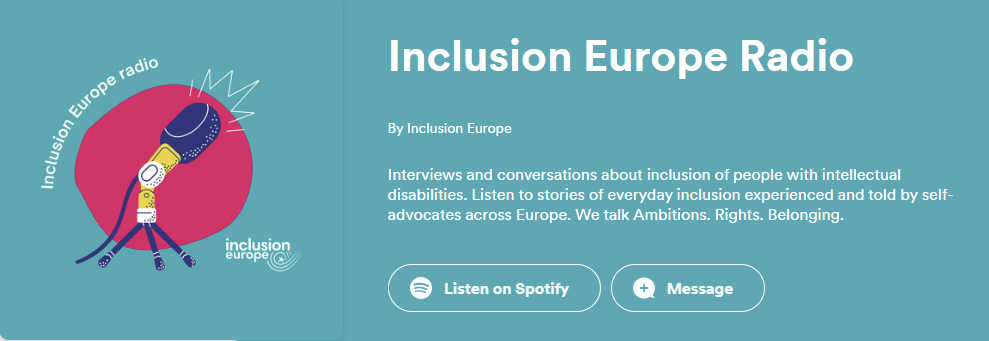-
DI is not a rocket science
As organisations of people with intellectual disabilities, and other advocates, we spend a lot of time demanding deinstitutionalisation.We also need to give time to working with those who make it happen. It’s about demonstrating to those responsible that deinstitutionalisation is doable.It has been done.It is being done.It can and will be done. Deinstitutionalisation is not…
-
European Commission’s Guidance on independent living and inclusion in the community
Today (11/12/2024), I had the pleasure to open a seminar on Guidance on independent living and inclusion in the community of persons with disabilities in the context of EU funding. The European Commission document is an important step in promoting the right of people with disabilities to live independently and to be included in their communities.…
-
Opožděně do výroční ankety
Promeškal jsem příležitost přispět v anketě, kterou ke svým narozeninám a hlavně ke dni lidských práv, uspořádalo JDI. Na svou obhajobu uvádím, že jsem byl v předmětném období dost zaneprázdněn, především věcmi, které by JDI měly být po chuti. Bylo by ovšem nespravedlivé, aby vás tyto okolnosti připravily o mé odpovědi. Pojďme tedy na otázky, které JDI…
-
It seems that deinstitutionalisation has become an exercise in wordsmithing
I was invited to speak during a workshop of the European Parliament’s Committee on Employment and social affairs. The workshop was about Deinstitutionalisation and independent living of persons with disabilities. The workshop, chaired by Li Andersson MEP, took place on 2 December 2024 in Brussels. Thank you for the opportunity to speak on behalf of…
-
Guidance, report, judgement
“Giving effect to independent living involves redirecting investments and resources from institutional settings and services to accessible and non-segregated places of residence, community-based services and support for persons with disabilities.” The European Commission released a Notice on “Guidance on independent living and inclusion in the community of persons with disabilities in the context of EU funding”. The Guidance…
-
Kudos where kudos’ due
We all know how hard it is to get your message outside of your usual circles. And how valuable it is, too. I’m so impressed seeing this from our member in Slovenia: A cover story, 3-page interview in a supplement to one of the daily newspapers. The interview is with Mateja de Reya, director of…

